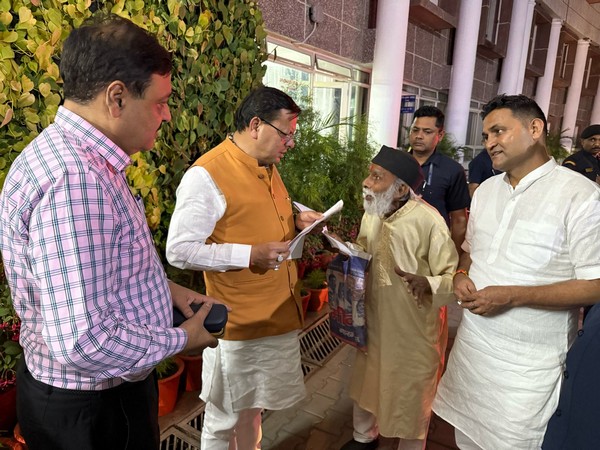Ashwini Vaishnaw calls Aatmanirbhar Bharat guiding strategy of govt
Mar 13, 2022

New Delhi [India], March 13 : Union Minister for Communications, Electronics and Information Technology Ashwini Vaishnaw on Sunday called 'Aatmanirbhar Bharat', the dominant philosophy for guiding the strategy and approach of the government.
Addressing a seminar organised by the Telecom Disputes Settlement and Appellate Tribunal (TDSAT) "25 Years of TRAI Act: Way Forward for Stakeholders (Telecom, Broadcasting, IT, AERA and Aadhaar)" here today, Vaishnaw said that the Unique character of the Telecommunications sector is the nature of spectrum which is indestructible and completely reusable.
The other unique characteristics of the sector, as pointed out by Vaishnaw, included its highly capital intensive nature, sensitivity to the technology changes and strategic importance, which has become more relevant today as compared to the time when TRAI Act was formulated, 25 years back.
Saying that the policy discourse today is defined by the post-COVID scenario where digital technology has become more significant, the Minister said that the thought process with which the government is moving ahead in terms of policies and initiatives, 'Antyodaya' and inclusive development is the first and foremost philosophy behind the decisions and initiatives of the government.
"With this thought, the government wants to narrow down the digital divide in the country," he added.
'Aatmanirbhar Bharat', Vaishnaw said, is the second dominant philosophy guiding the strategy and approach of the government.
"4G technology stack has been developed by Indian brains in record 14 months with a fraction of costs compared to the other systems have been developed," he said.
Further, the Minister highlighted the role of Indian institutions and scientists in the development of the 5-G core.
"Simultaneously we have started working on 6G technology so that we can take lead in 6 G and can set the direction for the whole world," he stated.
While concluding his remarks, Vaishnaw, sought suggestions from members of bars associations, judiciary, industry, media etc. for making the telecommunications sector a sunrise sector.
In the year 1997, the Telecom Regulatory Authority of India (TRAI) Act was enacted to regulate the telecommunications sector in India. It also provided for a mechanism of dispute resolution among the stakeholders of the telecom sector.
It was amended in 2000, establishing a Telecom Disputes Settlement and Appellate Tribunal (TDSAT) to take over the adjudicatory and disputes functions from TRAI.

















